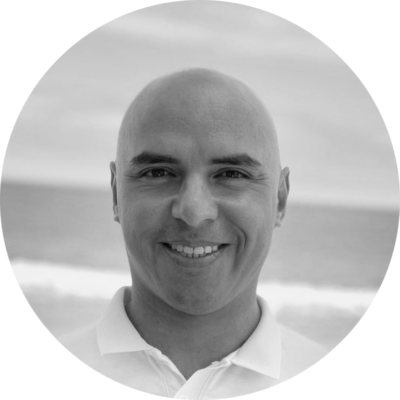
Oscar has more than 10 years of experience in rural development and project management, specifically focused on two models: The Small-Scale Agriculture Model (SSAM) and the Self Development District Model (SDDM), both implemented in several communities in the coast and highlands of Piura, Peru. He has created strategic alliances with Regional Governments, Municipalities, Universities, Companies and other NGO’s to expand the reach and impact for the rural families to improve their lives.
Oscar has a BS in Accounting and Finance and a Master’s in Management from the National University of Piura in Peru. He studied a Master’s in Project Management at the University of Piura and received the Project Management Professional (PMP) certification from the Project Management Institute (USA).
Q: How did you find your way into marine issues?
I was born in the coastal city of Piura and as a swimmer I enjoyed spending time diving, training, walking on the beach, seeing the sunsets in the summer time or just being close to the water. I had always wanted to study marine biology since I was a child, but life took me down a different path. Fortunately, in 2020 I found the opportunity to work with Future of Fish Peru and am now able to contribute in the improvement of the livelihood of fishers throughout the programs we are implementing in country. I did not hesitate in joining this awesome team! It’s interesting to think that even without studying the career I had dreamed of, life brought me back to the ocean and to being actively involved in the fishing sector.
Q: Interest in seafood sustainability and traceability has grown in recent years. Why do you think that is?
Both are very important nowadays. I think current generations are more aware of the damage we are producing to the planet by getting all we need from mother nature. Here is where the concept of Sustainability is crucial because we have to learn how to take care of the environment while also being able to take advantage of its resources in a sustainable manner..
Also, the concept of Traceability is key because if we know when and where the fish was caught, who the fisherman was, and relate them with quality, then customers would value those products more and will pay a fair price.
Q: Where do you hope global fish production will be in 5 years? 10 years?
I hope fishing becomes more sustainable in that period of time. Focusing on implementing the best practices with artisanal fishermen, connecting them with restaurants and other businesses to sell their products directly and reduce/remove the intermediaries within the supply chain. Likewise, the role of governments is key to create the conditions for the fishermen to succeed through customized public policies.
Q: What were you doing before you joined Future of Fish?
Prior to Future of Fish, I worked for the Universidad Privada del Norte in the Peruvian highlands in Cajamarca as a Career Coordinator, which allowed me to support around 500 students in International Business to reach their goals as future professionals. Before taking that interesting responsibility, I opened the branches of two international organizations, CHOICE Humanitarian and for The Institute for Self-Reliant Agriculture – Feed The World in Peru. Both organizations taught me how to lead diverse teams and manage portfolios of development programs and projects to improve the living conditions of rural farmers in the coast and highlands of the country. The most rewarding part of those experiences was looking into the eyes of the people we had the opportunity to work with and seeing that we all are equal.
Q: How do you see your previous experience coming into play at Future of Fish?
Additionally to my general and project management experience in the developing sector, I’m bringing my positive attitude and energy to Future of Fish Peru. I love to help people grow and collaborate to accomplish all we plan in order to benefit the fishermen of coastal Peru. Also, I believe that my continuous improvement approach is very important to always learn and be a better person and professional.
Q: What most attracted you to working with Future of Fish?
First, the mission. Referencing the famous proverb “Give a man a fish, and you feed him for a day. Teach a man to fish, and you feed him for a lifetime”, Future of Fish is creating self-sufficiency of the fishermen through training in leadership, formalization, access to financial resources, business management and governance. This way they will be the architects of their own destiny.
Second, the Team. Since the beginning of the recruitment process I followed, I realized the leaders of Future of Fish were very high level. I felt that they cared about people so I said “I would love to be part of this organization”. When I started to work here I realized that what I had thought at the beginning was totally true. I love my Team!
Q: What are you most looking forward to doing in the next year?
We are going to start the implementation stage of the programs so the first step is to hire the best talent to join our team to achieve the organizational goals during the expected milestones. Second, it’s developing the team and starting executing the plans in La Islilla.
Also, we will carry out a positioning strategy in the country that will allow us to bring many more partners such as governments, companies, international organizations, donors and stakeholders, who contribute to improve the living and working conditions for fishermen. I’m going to reference another famous proverb: “If you want to go fast, go alone; but if you want to go far, go together”, which we think is true, so the more motivated organizations we can bring to join us in this wonderful adventure, the better.
Published Aug 27, 2021




